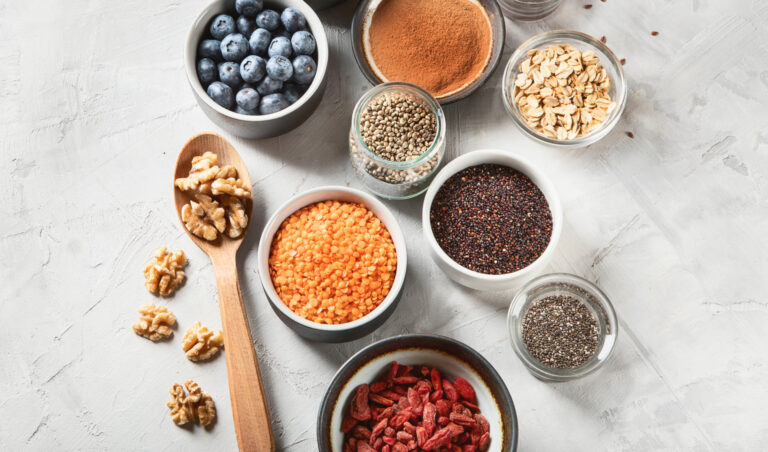
Stress and the modern Western diet (fast food, soft drinks) are factors that contribute to what is known as “silent inflammation” in our body, that is, underlying inflammatory processes. Silent inflammation induces oxidative stress. This explains the radicals that are constantly produced in our body, which need to be intercepted by antioxidants/radical catchers. Antioxidants freely release electrons in order to protect cells. Oxidative stress and antioxidant capacity should be at least equally balanced. However, if we eat processed foods, sleep badly, have lots of stress, not enough exercise, air pollution, heavy-metal pollution, medicines, as well as stimulants, such as smoking and alcohol, radicals can gain the upper hand. Belly fat, so-called “visceral fat”, is a reliable prognostic indicator of silent inflammation.
Chronic fatigue, chronic pain syndromes, susceptibility to infection, loss of function. Silent inflammation may lead to hypertension, hyperlipidaemia, type two diabetes, arteriosclerosis and, as a result, also pave the way for tumours, heart attack, stroke and dementia.
So what can you do to help your body as well as possible? Use vegetables and fresh fruit, preferably organically grown, as much as you can. Of the vitamins, vitamin C in particular is an allrounder, as are carotenoids. The secondary compounds found in plants have antioxidant and anti-inflammatory properties, and even lower cholesterol.
These foods are essentials: tomatoes, nuts, carrots, citrus fruits, sweet peppers, onions, garlic, apples, broccoli, different varieties of cabbage, avocado, oil seeds, shoots and sprouts, as well as wholemeal products and herbs and spices, such as turmeric, rosemary, ginger and oregano.
Eat fresh, colourful, varied food – and take the time to eat it slowly. Take plenty of exercise, preferably out in the fresh air. Fasting is a real power tool, increasing antioxidant capacity and reducing lipid peroxidation, as evidenced by scientific studies.
What’s more, fasting reduces stress and can pave the way to a sustainably healthy life.